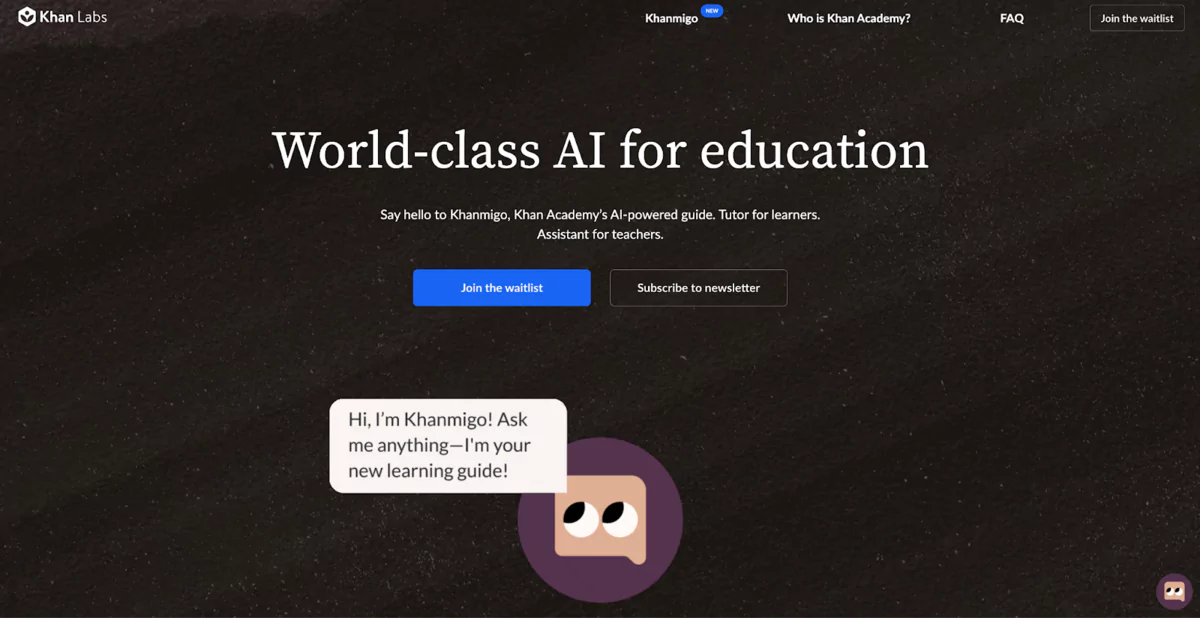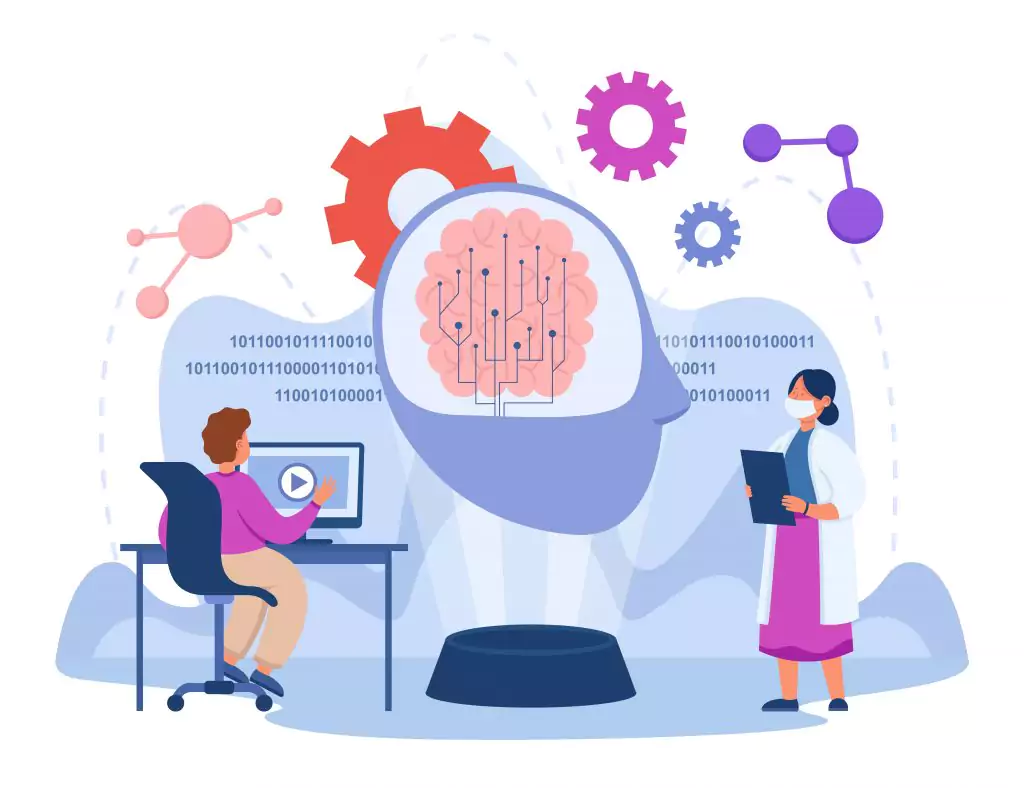Khan Academy is testing a new virtual tutor and classroom assistant using OpenAI’s GPT-4 technology, despite concerns and bans on the use of AI like ChatGPT in schools across cities like New York, Los Angeles, and Seattle. In an interview with Yahoo Finance Live, Khan Academy Founder and CEO Sal Khan explained that the organization is working with OpenAI to develop an AI system that helps students learn without enabling them to cheat.

✅ AI Essay Writer ✅ AI Detector ✅ Plagchecker ✅ Paraphraser
✅ Summarizer ✅ Citation Generator
Key Takeaways:
- Khan Academy is testing a new AI system named Khanmigo designed to aid students in learning, provide tools for teachers to create lesson plans and efficiently grade work, as well as offer monitoring features for parents and teachers to ensure student safety.
- Khanmigo focuses on helping students learn instead of enabling cheating and uses moderation filters and monitoring to counter potential bias and inappropriate content.
- Khan Academy’s CEO, Sal Khan, anticipates that AI technologies like Khanmigo will play a crucial role in personalizing classrooms and easing teacher workload.
Khanmigo, the AI-powered platform developed by Khan Academy, aims to act as a tutor and offer novel activities for students. It also provides teacher-facing tools to help educators develop lesson plans and assess student work more efficiently. The platform offers moderation filters and monitoring options for teachers and parents to ensure student safety and minimize risks associated with AI, such as inaccuracies, bias, or inappropriate content.
Sal Khan envisions a future where classrooms are more personalized, with AI technologies like Khanmigo assisting both students and teachers. In the next five years, he expects AI will be able to understand students better over longer periods and facilitate more meaningful interactions between students, teachers, and parents.

Interestingly, 40% of teachers are already using ChatGPT, despite the bans in some school districts. Teachers spend approximately 30-50% of their time on lesson planning, grading papers, and other administrative tasks. Khan Academy has been working with OpenAI for about six months on the development of Khanmigo, demonstrating a strong commitment to advancing AI solutions in the education sector.
In the interview with Khan Academy Founder and CEO Sal Khan, several challenges and concerns related to the use of AI in classrooms were mentioned. Here are the problems and their proposed solutions:
Cheating: Some schools have banned ChatGPT due to concerns about students using the technology to cheat. Khan Academy has partnered with OpenAI to create Khanmigo, which focuses on helping students learn rather than enabling them to cheat. By working with the students on tasks instead of doing it for them, the platform encourages collaboration and learning.
Hallucination: AI language models can sometimes generate incorrect or fabricated information. GPT-4 has been designed to reduce such hallucination behavior compared to previous versions. Khan Academy is also working to improve the system’s accuracy in subject areas like math.
Bias: AI models can inadvertently introduce bias into their responses. Khanmigo addresses this issue by implementing strong moderation filters and allowing teachers and parents to monitor student interactions. If potentially biased or inappropriate content is detected, the system alerts the teacher or parent.
Student Safety: Ensuring the safety of students while using AI systems is crucial. Khanmigo includes monitoring options for teachers and parents, allowing them to oversee student interactions and step in if necessary.
Teacher Workload: Teachers often spend a significant amount of time on lesson planning and grading, leaving less time for individual student support. Khanmigo offers tools to help teachers create lesson plans more efficiently and assess student work, such as free responses and essays, freeing up time to provide personalized guidance.
AI Adoption Resistance: Some teachers and schools may be hesitant to adopt AI technologies due to concerns about their effectiveness and potential risks. By demonstrating how Khanmigo can enhance learning while mitigating risks, Khan Academy aims to build trust among educators, parents, and school districts.
To tackle the challenges and concerns related to the use of AI in classrooms, Khan Academy is actively working on using the best AI for academics, providing safeguards, and enhancing collaboration between AI, students, teachers, and parents to create a more personalized and efficient learning environment. By addressing these issues head-on, Khanmigo stands poised to revolutionize the educational landscape and transform the way students and teachers interact in the classroom.
Charting a New Course for Education with AI Evolution
As we break into the thrilling frontier of artificial intelligence, the ripple effects on the future of education are becoming harder to ignore. The consensus is building: this technology is far from a mere trend, rather it’s cementing its place as a game-changer. It’s revolutionizing the traditional paradigms of learning and teaching, pushing the boundaries of what we once thought possible. The advent of tools like Khanmigo, an AI-powered virtual tutor and classroom assistant, represents a significant leap towards a transformative and interactive learning experience.

AI in education can manifest in a variety of ways, including personalized learning paths where content is tailored to individual students’ abilities and interests, AI tutors offering real-time guidance and feedback, intelligent systems to automate grading and administrative tasks for teachers, and advanced analytics to track student progress and identify areas of struggle. Furthermore, AI can facilitate immersive learning experiences through virtual reality and augmented reality, and encourage collaborative learning by connecting students and educators across the globe.
This fresh take on education blends tech with teaching, with the goal of enriching the learning journey. It aims to make learning more personal, ramp up student involvement, and make teaching tasks more efficient. With the increasing incorporation of AI in learning, the educational landscape is poised for a radical paradigm shift, where AI doesn’t replace teachers but instead serves as an invaluable ally, complementing their efforts to unlock students’ potential and drive academic success. In the classrooms of the future, AI tools will act as dynamic interfaces between learners and knowledge, creating an environment where education is not only more engaging but also more efficient and effective.
Related stories:
UK Education Secretary Addresses Concerns Over ChatGPT AI Usage in Schools: Pros and Cons Weighed
Hong Kong University Goes Rogue, Welcoming ChatGPT for Coursework Despite Rivals’ Bans
Is ChatGPT Undetectable by Turnitin? Investigating AI Text Generators in Academic Writing
Follow us on Reddit for more insights and updates.





Comments (0)
Welcome to A*Help comments!
We’re all about debate and discussion at A*Help.
We value the diverse opinions of users, so you may find points of view that you don’t agree with. And that’s cool. However, there are certain things we’re not OK with: attempts to manipulate our data in any way, for example, or the posting of discriminative, offensive, hateful, or disparaging material.